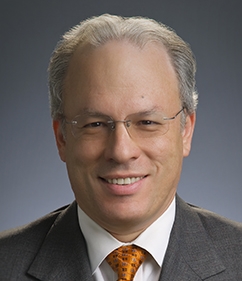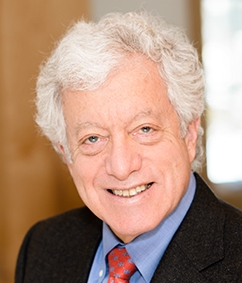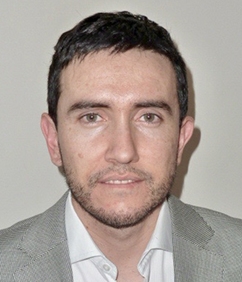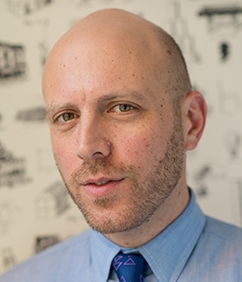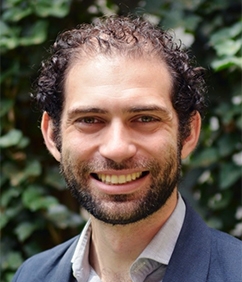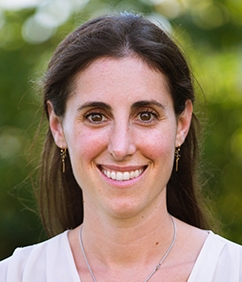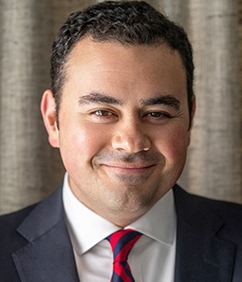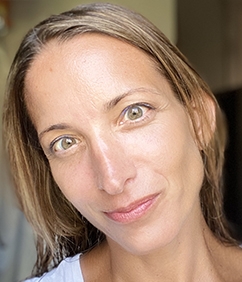Boundless Energy
In the shift away from carbon-based fuels toward green, more sustainable energy sources, NYU Law alumni are power players.
BY ATTICUS GANNAWAY
In April, astonished residents of Jalandhar, a city in northern India, reported that they could plainly see the snowy peaks of the Himalayas’ Dhauladhar range, more than 100 miles away, for the first time in decades. All around the world this year, people noticed improved visibility in cleaner air. One of the unexpected results of the global COVID-19 pandemic is that the national lockdowns that kept vehicles off the road and factories shuttered also temporarily reduced air pollution and prompted a heightened awareness of how human activity—or inactivity—affects the environment.
Annette Beitel ’94 is the president of Future Energy Enterprises, a Chicago-based consulting firm. She speculates that, as horrible as the COVID-19 crisis has been, “people may be more open to the truth of climate change, because they now see certain things can really have a rapid and worldwide effect.” This potential illumination is especially important because, for many other effects of climate change—such as the hundreds of California wildfires that have consumed more than 1.4 million acres of land this summer, or increasingly powerful hurricanes, such as this year’s Hurricane Laura, one of the most powerful storms ever to hit the US—the links to carbon emissions are less obvious.
Beitel is one of 10 NYU Law alumni interviewed for this article who have built careers in the clean energy space. Their individual paths vary: some have built businesses focused on clean energy, while others are advocates or are active in policy research. Each narrative, though, highlights what may be the most compelling element of clean energy: its benefits for both commerce and the greater good.
The energy landscape has shifted dramatically over the past decade. The costs of producing solar and wind energy have plummeted. Natural gas, which emits less carbon than other fossil fuels, has also become markedly cheaper due to the growth of fracking; although it’s far from carbon-neutral, some view natural gas as a “transition fuel” to greater reliance on renewable energy sources. Meanwhile, coal plants have closed by the hundreds. A decade ago, coal generated almost half of electricity in the US; in 2019, those plants provided less than a quarter of the country’s power, despite the Trump administration’s relaxation of environmental regulations affecting the coal industry.
These developments did not occur in a vacuum. During the Obama administration, the federal government invested tens of billions of dollars in clean energy, through direct spending as well as tax credits for solar energy investment and wind energy production. Those economic policies, along with stricter emissions regulations, created incentives for private industry to seek better clean energy technologies. The Paris Agreement, adopted by nearly 200 countries in 2015, provided further impetus by establishing a goal of keeping the global average temperature less than 2°C above pre-industrial levels.
This confluence of factors has precipitated a booming clean-energy sector. Before the coronavirus began triggering mass layoffs across the economy, almost 3.4 million Americans worked in clean energy, as compared with about 1.2 million in the fossil-fuel sector. Last year, the creation of clean-energy jobs in the US outpaced that of fossil-fuel jobs nearly fivefold. Much of this employment growth has been spurred by global new investment in clean energy, which in 2019 totaled $333.6 billion—triple the 2006 figure.
MARKET POWER
Neil Auerbach LLM ’84
Experience: As a partner at Goldman Sachs, he founded its alternative energy business in 2003, and then started Hudson Clean Energy Partners, now called Hudson Sustainable Investments, in 2007.
Auerbach dived into the clean energy pool at an optimal time, as he explained at a symposium on the business and law of renewable energy finance held at NYU Law in 2013. The sector’s growth between 2002 and 2008, he said, stemmed from “massive fiscal stimulus” worldwide, higher energy prices, and increasing global concern about climate change. Goldman invested in SunEdison and First Solar, two of the most successful solar businesses in the US, as well as Horizon Wind, the best-performing wind energy developer with private equity backing in the country. Hudson Sustainable Investments, the asset management company that Auerbach now heads, has focused on renewable energy, power electronics, battery storage, electric vehicles, and grid infrastructure through investments in more than two dozen countries.
Energy infrastructure and distribution, Auerbach says, have become even more important in light of the supply-chain disruptions and economic fallout caused by COVID-19. With the pandemic having heightened concerns about the failure of delivery systems, he sees consumers becoming more interested in behind-the-meter generation and storage of energy through microgrids and other means.
“Let’s try to figure out how to get more comfortable that if bad things happen to our economy, things that we didn’t foresee, that we’re not going to be abandoned by centralized infrastructure that cannot deliver in times of crisis,” says Auerbach.
Jeffrey Mayer ’78
Experience: After overseeing major energy deals during his 1984-93 tenure at Goldman Sachs, Mayer moved to an AIG subsidiary later renamed Sempra Energy Trading. There, he helped launch a retail energy business, Direct Energy, and then founded retail energy distributor MXenergy. Today, Mayer’s clean energy companies include Solomon Energy, an energy advisory firm that helps clients to implement solar, wind, energy storage, and supply projects sustainably; Solar Farms New York, which markets community solar memberships to homeowners and businesses wishing to use solar energy generated at remote solar farms; and Oasis Charger Corporation, an electric vehicle charger manufacturer.
In 2006, while president and CEO of MXenergy, Mayer, believing that the energy sector had “tunnel vision” about climate change, screened An Inconvenient Truth, Al Gore’s documentary on the threat of global warming, for his employees.
“I basically said to our team at MXenergy, ‘We can be part of the problem or part of the solution. Let’s imagine that we’re in the tobacco business. Thirty years from now, the planet is poisoned. People are going to look back at us and say, ‘What were you thinking?’” Among the suggestions in the documentary’s end credits was “Plant trees, lots of trees.” Taking up the challenge, MXenergy offered its customers credits that supported the planting of carbon-offset forests. The company also gave customers rebates for purchasing Energy Star appliances.
Mayer tried to bring solar to MXenergy but couldn’t find a way to make it work. Instead, after leaving MXenergy, he became a solar entrepreneur himself.
One key lesson in sustainability, Mayer says, is that guilt doesn’t sell. He cites a 2008 study in which hotel guests proved significantly more likely to reuse towels in response to a sign indicating most other guests did so than to a sign stressing conservation.
“We have to learn ways to communicate with people to sell renewable energy products, and we’re not going to do it because we guilt them,” he says. “We’re going to do it because we make them feel like they’re part of a larger community, because we provide value, save them money…. You will never read on any of my websites how many tons of carbon you’re eliminating or how many cars are off the road, because none of that sells. Nobody cares.”
Gonzalo Moyano LLM ’09
Experience: After finishing his LLM, Moyano was a fellow at NYU Law’s Institute for Policy Integrity, then launched a renewable energy start-up in his native Chile. He later sold the business and went to work for Pattern Energy Group, leading market and development strategy for renewable energy projects in Chile and Argentina. Since 2018, he has headed the Chile office of Distributed Power Partners.
Moyano says that, when he returned to Chile after NYU Law, he had job offers from multiple law firms, but that the multidisciplinary approach to the law that he’d encountered at NYU Law had broadened his vision. Thinking about which opportunities Chile was well positioned to facilitate in the years ahead, he settled on solar energy. The business he founded, Pleiades New Energy Ventures, developed utility-scale solar energy projects. His favorite part, he says, was reaching collaboration agreements with indigenous communities in northern Chile: “Probably we were among the first projects that did a really deep and detailed approach to those communities and went through a process of community engagement…. We were able to make some agreements that would benefit the communities by supporting their agricultural activities and production.”
At Distributed Power Partners, Moyano is currently leading a portfolio of eight projects in northern Chile representing 100 megawatts of distributed solar power. Highly enthusiastic about distributed energy—electrical storage and generation that is smaller-scale, decentralized, and more flexible than traditional power plant generation—Moyano underscores the importance of advances in storage technologies as the cost of storage continues to drop, facilitating constant access to solar and wind power even when the sun fails to shine and the air is still. “The way I see it, storage is where solar energy was when I was at NYU 10 years ago,” he says. “It will introduce a complete change in how we understand energy markets.”
Annette Beitel ’94
Experience: After earning a master’s degree in environmental technology and policy at the Massachusetts Institute of Technology and working as an environmental consultant, Beitel attended NYU Law. She began her legal career at Pacific Gas and Electric Company, where she eventually moved to the business side of the company. Beitel started her own consulting firm, Future Energy Enterprises, in 2007.
Specializing in energy efficiency and clean energy program design and administration, Beitel’s firm takes on clients—primarily utilities—that have strategic problems requiring experts who know the legal landscape and can work with a broad range of stakeholders, including regulatory commissions.
Beitel says one of her most satisfying projects was a decade-long stint overseeing the Illinois Energy Efficiency Stakeholder Advisory Group, in which a broad array of parties—including utilities, nonprofits, the Illinois attorney general, the Illinois Commerce Commission, and businesses—engaged in intense negotiation leading to a unanimously supported statewide energy efficiency policy manual. Her legal training, she says, proved significantly beneficial in the process.
“Working in the environmental space generally and clean energy specifically,” says Beitel, “outcomes are so heavily dominated by law and regulation and by policymakers, by regulatory commissions, that if you don’t understand that framework, it’s really hard to make positive change.”
Daniel Firger ’10
Experience: As a law firm associate, Firger worked on transactional matters involving carbon credits and renewable energy project development. In 2014 he joined Bloomberg Philanthropies, where he helped manage the foundation’s wide-ranging activities related to clean energy, climate change, and sustainable finance. Firger left that position in 2019 to co-found Great Circle Capital Advisors.
A Root-Tilden-Kern Public Interest Scholar while at NYU Law, Firger came to the Law School with an intense focus on climate change. His coursework included healthy doses of international law and global governance. At Bloomberg Philanthropies, in coordination with the Sierra Club, Firger helped build out a nationwide Beyond Coal campaign aimed at replacing coal plants with clean energy alternatives. (Another beneficiary was NYU Law’s State Energy & Environmental Impact Center, for which Firger worked to arrange seed funding.) Firger also provided key support to Bloomberg Philanthropies’ founder, Michael Bloomberg, in the ex-New York City mayor’s dual roles as United Nations special envoy for climate action and as chair of the Financial Stability Board’s Task Force on Climate-Related Financial Disclosures.
At Great Circle Capital Advisors, Firger advises venture capital funds on emerging markets, particularly those related to climate, clean energy, and sustainability. He also provides strategic advising to large endowments, hedge funds, and private equity start-ups seeking to align their investment portfolios with climate and sustainability concerns. “Having been at Bloomberg Philanthropies, where I got to work on big projects at the highest levels with the United Nations, the G20, the White House, the Élysée, et cetera, it’s been great to roll up my sleeves a bit more and collaborate with entrepreneurs and investors trying to solve immediate, tangible problems,” Firger says.
“What used to be a niche issue for ‘environmentalists’ has become so mainstream as to be almost boring,” he adds. “BlackRock, the world’s largest asset manager, and every other major investor in the world is taking as a given the need to dramatically decarbonize our economic lives. That is incredibly exciting and incredibly scary in equal measure, because the task is enormous, and we’ve got less time than we used to.”
SPARKING CHANGE THROUGH POLICY
Avi Zevin ’13
Experience: Zevin worked as an associate at Van Ness Feldman, a boutique energy, environmental, and natural resources law firm in Washington, DC. He then joined NYU Law’s Institute for Policy Integrity, where he served as a senior attorney until earlier this year, when he became an affiliated scholar there. Zevin now works also with Google, a large electricity consumer that has committed to using clean energy 24/7. He is helping the company to advance federal policy related to clean energy development and deployment as well as energy market reform and expansion.
NYU Law’s Institute for Policy Integrity, founded in 2008, has taken an active role in using cost-benefit analysis to bring greater reason to environmental policy debates. Zevin says he was drawn to study law at NYU partly because of the international reputation of Dean Emeritus Richard Revesz, Policy Integrity’s director.
Much of Zevin’s Policy Integrity work involved the regulation of electricity by the Federal Energy Regulatory Commission (FERC), an independent government agency. Zevin also engaged directly with regulators—especially through creating comments on FERC’s actions—and participated in litigation to defend state-level policies that would promote the use of clean energy.
“By and large, FERC’s actions have created headwinds for the deployment of clean energy,” Zevin says. FERC has engaged in proceedings, Zevin explains, that would have the effect of undermining the benefits of some state energy policies directed toward renewable and sustainable energy resources.
Yet those headwinds, he adds, have neither reversed nor arrested clean energy’s momentum. “The fundamental economics of the electricity system at the moment, combined with state policy, are pushing towards increasing the amount of renewable energy on the system and reducing the amount of older fossil-fuel generation, in particular coal plants,” says Zevin. Concerns over climate change have prompted states to take the lead on renewable and sustainable energy, he underscores. Figures from the think tank Third Way indicate the scale of the recent surge: well over half of clean energy commitments by US states, large cities, and utilities from 1983 on have been adopted just since 2016.
Danielle Spiegel-Feld ’10
Experience: Spiegel-Feld studied interactions between international trade law and domestic environmental policy while a research fellow at the University of Copenhagen’s Faculty of Law. Since 2014, she has served as the executive director of NYU Law’s Guarini Center on Environmental, Energy, and Land Use Law.
At the Guarini Center, Spiegel-Feld has been deeply involved in New York energy policy and has published widely on environmental and energy law and policy. “We were among the early academic policy institutes thinking about how New York City should reform the electricity rate structure in order to incentivize the development of clean energy,” she says. Spiegel-Feld’s proposal for reforming New York City’s tax abatement program for green roofs, which bolster energy efficiency, was a primary resource for legislation signed into law last year by Governor Andrew Cuomo.
Clean energy advocates, she notes, debate “as to whether we should be working to get rid of natural gas as quickly as possible, or if natural gas is an essential bridge fuel that will help smooth out the transition towards clean energy.” Likewise, some environmentalists and energy industry figures see nuclear power as another bridge toward decarbonization, while others favor abolition. At the Guarini Center, she says, “We’re particularly skeptical of the idea that some of the really aggressive decarbonization goals can be met in the near term while simultaneously decommissioning nuclear.”
Overall, however, the Guarini Center has not chosen particular clean energy technologies to uphold, focusing more on the need to price emissions and therefore create a more favorable climate for cleaner energy sources. “We’re very much rooted in the idea that market-oriented solutions to environmental policy will probably yield the greatest improvement in the environment,” Spiegel-Feld says, “because they’ll do so at least cost.”
ENERGETIC ADVOCACY
Richard Powell ’10
Experience: After NYU Law, Powell worked in McKinsey & Company’s Energy and Sustainability practice. When ClearPath founder Jay Faison hired McKinsey to help formulate a business model strategy, Powell decided to join the fledgling nonprofit, which develops and advances conservative policies that promote clean energy innovation. He is now ClearPath’s executive director.
“I had just seen so many examples of places in which companies were finding massive opportunities that happened to be clean,” Powell recalls. “So I was very much of the mindset that these two things are not incompatible: becoming much more sustainable and becoming a more competitive, robust, resilient company.”
Government has a mixed record when it comes to developing clean energy, Powell says, but adds, “I think we’ve done really well when we’ve set clear goals for what we want and we do a soup-to-nuts approach to policy support to get there.” ClearPath has played a major part in efforts to persuade Congress to give more and better-targeted resources to the Department of Energy. The organization was also a strong advocate for the Section 45Q Carbon Capture Tax Credit, which provides a tax incentive to companies that capture and store their carbon emissions.
“It might well make sense to put the next incremental dollar of capital you’re going to spend into retrofitting a refinery to capture its carbon emissions and getting the 10-year revenue stream of the incentives for doing that,” says Powell. “That may be the best way to deploy new capital, not to invest in new production. And that could be a really healthy dynamic for climate.”
Elizabeth B. Stein ’03
Experience: Stein spent six years as a transactional real estate attorney. In 2009, during a global recession, she took a one-year deferral from Skadden, Arps, Slate, Meagher & Flom to work at the Environmental Defense Fund (EDF). Stein eventually began in a full-time position at EDF, where she is now a lead counsel for energy transition strategy.
At EDF, Stein found she could apply the expertise she’d developed in real estate practice. “Energy efficiency in buildings and how to finance it was the hot issue in New York City clean energy circles in 2009…. It turned out that I had a lot to offer because I knew a fair amount about the various instruments that governed building ownership and operations, and then financing—I knew how leases worked, I knew how mortgages worked,” Stein remembers. She focused on what she calls a “principal-agent problem”: in large buildings that release emissions through operations over time, the owner, who pays the energy bill on behalf of tenants and then passes the cost on to them, is not the same party who controls energy usage.
“Adopting energy efficiency measures that would cause the bill to go down doesn’t help the owner, who is the only party in a position to actually do it,” Stein says, adding, “That’s the kind of barrier that we were thinking through and working on instruments to get around it.”
One of Stein’s proudest accomplishments, she says, has been to help modernize New York State’s electric system. Over the course of several years, she made a case to New York’s Public Service Commission for advanced electric metering infrastructure as part of the system’s modernization. Stein argued that such infrastructure would facilitate price signals as a powerful driver of energy-efficient behavior; the commission ultimately agreed. “There are more and less expensive times to consume, and there are times when it would be a really good idea to shut things off,” Stein says. “Most of us don’t see a price signal that tells us any of that. It can make a gigantic difference in not only how much energy is used altogether, but how much total generating capacity that the system needs.”
Donna De Costanzo ’96
Experience: After NYU Law, De Constanzo worked as an assistant regional counsel in the Waste and Toxic Substances Branch at the US Environmental Protection Agency, then served as counsel to the New York City Council’s Committee on Environmental Protection. In 2007 she joined the Natural Resources Defense Fund (NRDC), where she now directs the NRDC’s Climate & Clean Energy Program for the Eastern Region.
Working for the New York City Council’s environmental committee, De Costanzo played a key role in the development of the city’s first sustainability plan and drafted numerous local environmental laws. “It was incredibly exciting to be able to do work like that at the local level, in a place where it could be seen as a model for other cities around the country,” she says.
At NRDC, De Costanzo focuses on New York City issues as well as state-level matters, advocating for energy efficiency, renewable energy deployment, sustainable communities, and smart growth. 2019 was a watershed year for climate and clean energy action at both the municipal and state levels, she says. The New York City Council passed the Climate Mobilization Act, aimed at reducing greenhouse gas emissions and bolstering buildings’ energy efficiency, while the New York State Legislature ushered the New York Climate Leadership and Community Protection Act into law, codifying ambitious targets for greenhouse gas reduction and clean energy expansion, among other measures. De Costanzo worked hard to help both packages of legislation cross the finish line.
She echoes Zevin’s observation that states and municipalities are helping to fill in the gaps left by current federal policies. And while New York and other states perceived as liberal are stepping up, she adds, the phenomenon transcends political orientation: “It’s states across the country and in every region where things are moving forward. They’re not just the usual suspects.”
These are just some of the NYU Law alumni making a difference in the clean energy space. If you're an NYU Law graduate with a career in this area, let us know by emailing law.communications@nyu.edu. We will continue to cover our graduates' work on climate change–related issues.
Atticus Gannaway is senior writer at NYU Law.
Posted September 11, 2020


